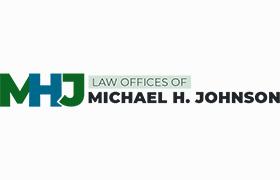 Pompano Beach Reorganization Lawyers, Florida
Pompano Beach Reorganization Lawyers, Florida
Sponsored Law Firm
-
 x
x

Click For More Info:
-
Law Offices Of Michael H. Johnson, P.A.
3601 W. Commercial Blvd Suite 31 Fort Lauderdale, FL 33309» view mapBankruptcy & Debt Experienced Legal Guidance
I know how important getting out of debt can be, and I’m committed to providing innovative, effective solutions to help you have a brighter future.
800-773-6441
Lawyers
1-4 of 4 matches
Bankruptcy & Debt, Bankruptcy, Reorganization, Bankruptcy Litigation




 Michael Johnson Fort Lauderdale, FL
Michael Johnson Fort Lauderdale, FL AboutLaw Offices Of Michael H. Johnson, P.A.
AboutLaw Offices Of Michael H. Johnson, P.A.